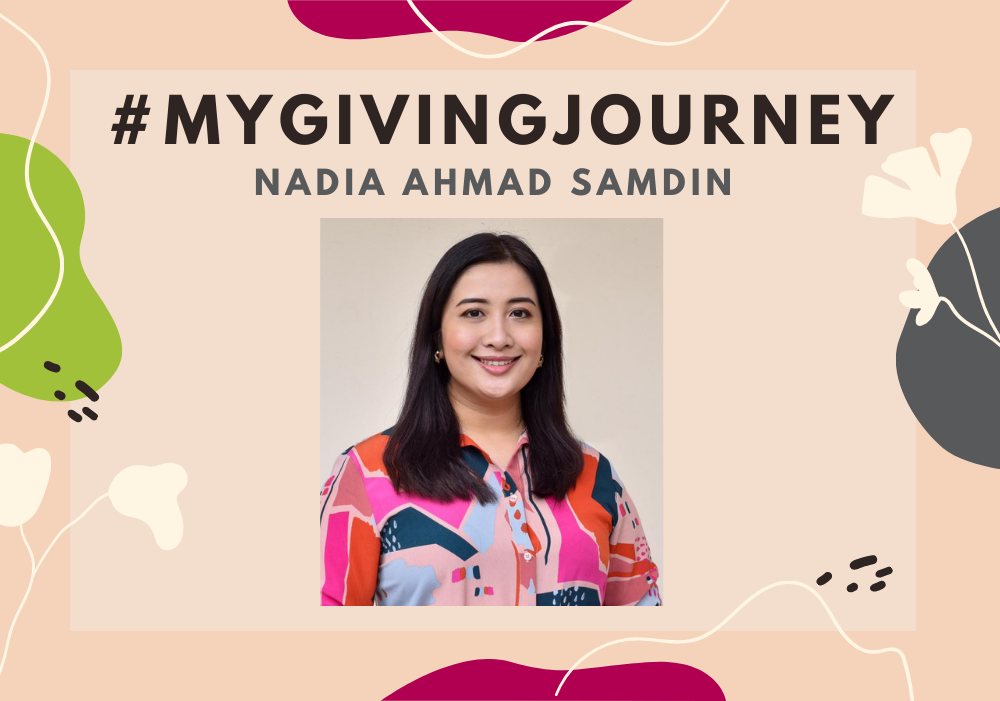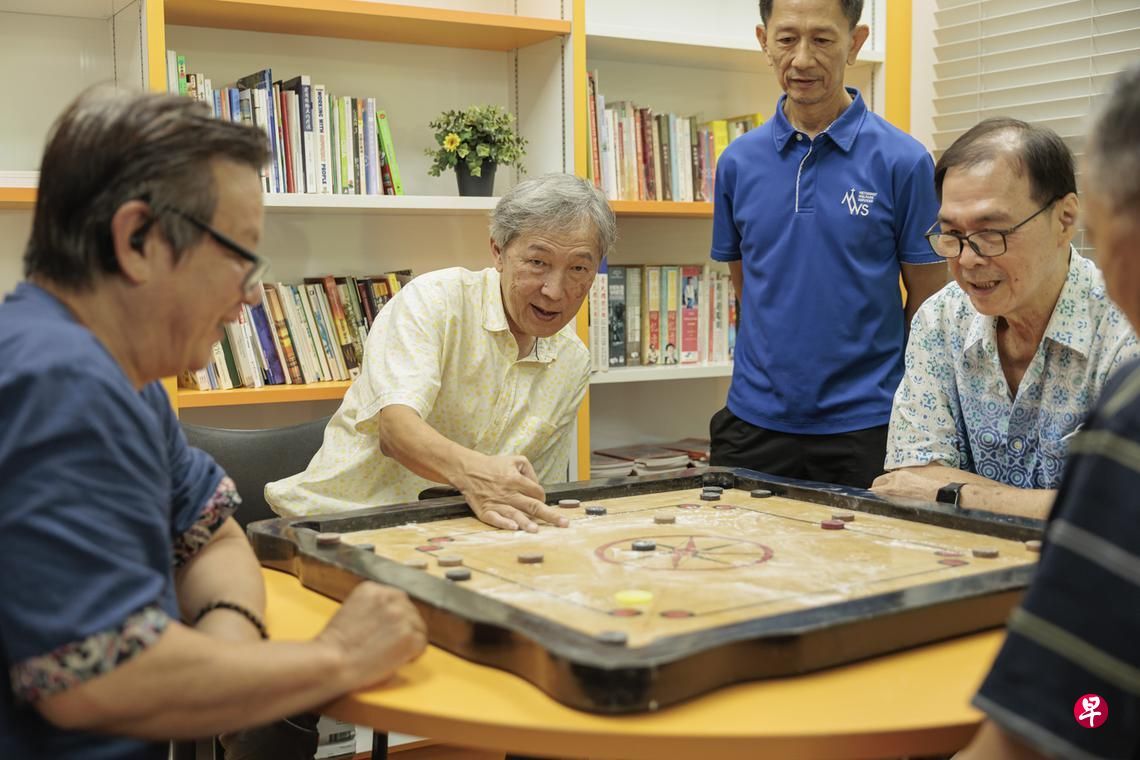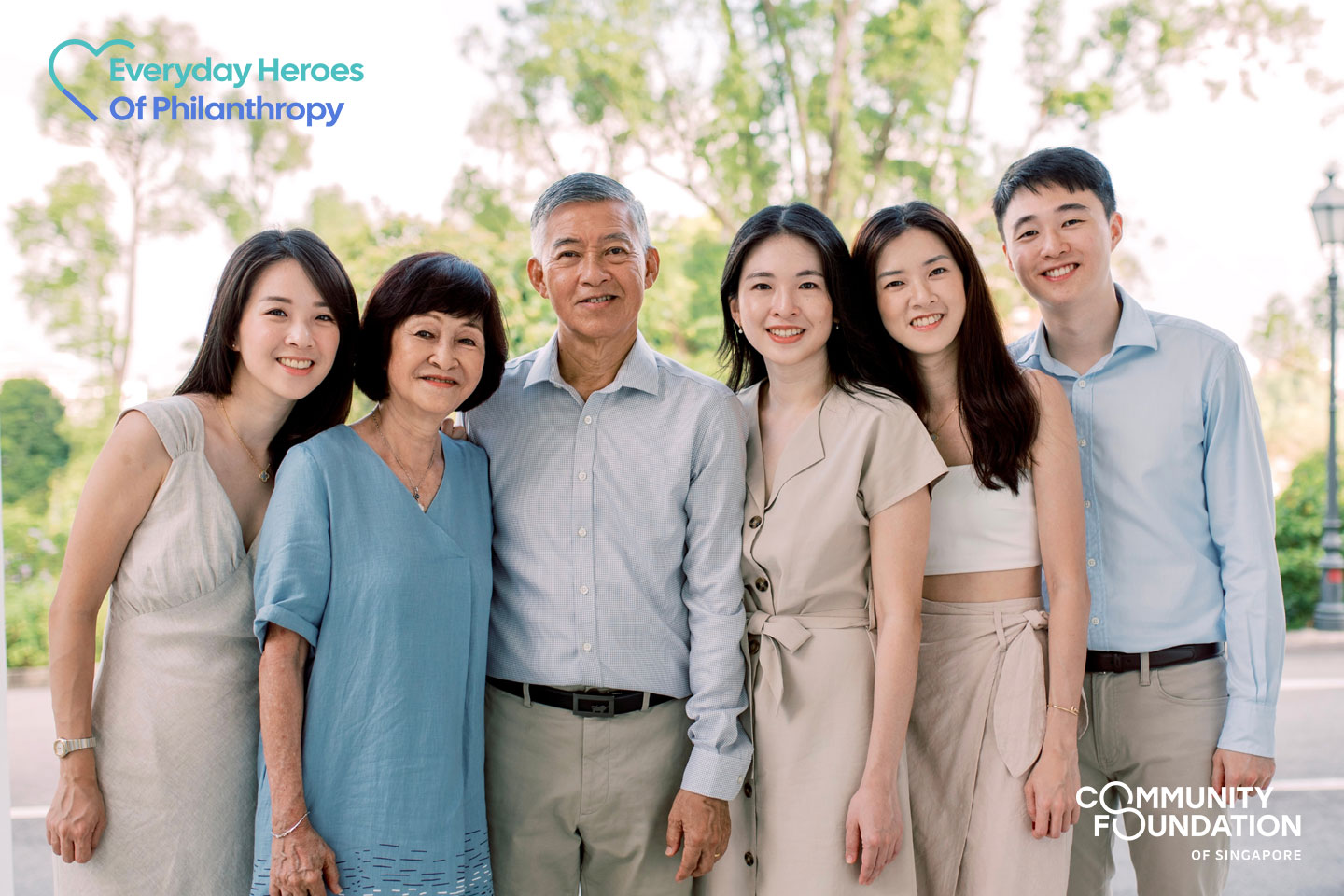#MyGivingJourney x Nadia Ahmad Samdin: Changing the game for giving


CFS’s #MyGivingJourney series portrays extraordinary women and their efforts in philanthropy. This story features Nadia Ahmad Samdin, CFS’s legacy giving ambassador and a woman who wears many hats.
Many who donate to charity often ask: For every dollar they give, what good actually comes of it? Nadia Ahmad Samdin believes increasingly, we will be able to answer that. In a world where tracking usage is commonplace – from our phone use to carbon footprint– a data-driven approach to philanthropy could be a game-changer. The Community Foundation of Singapore (CFS) aligns with Nadia’s belief and strives to be a trustworthy organisation that is transparent and accountable.
Nadia is Counsel & Project Leader at Tri-Sector Associates, a pioneering social enterprise that is finding innovative ways to solve complex social problems. In June 2021, Tri-Sector launched the first Social Impact Guarantee (SIG) with the Lorinet Foundation, TL Whang Foundation and the YMCA for its Vocational and Soft Skills Programme, which helps empower vulnerable youths. But here’s what’s pivotal: the SIG offers donors a money-back guarantee if targets are not met. This outcomes-based funding is relatively new but is gaining traction with impact-minded donors who focus on what works and are willing to provide capacity building support to charitable organisations, Nadia says.
Community has defined Nadia’s life from a young age. She began volunteering when she was in secondary school and by her 20s, her calendar was full serving with community initiatives such as the Singapore Council of Women’s Organisations, Lembaga Biasiswa Kenangan Maulud (an IPC), the South East Community Development Council and the National Youth Council.
After graduating from Singapore Management University, Nadia embarked on a career at TSMP Law Corporation. Her six years in corporate law taught her to “bridge divides, come up with creative solutions and put myself in others’ shoes to work towards outcomes which are mutually agreed upon”, she says.
In 2020, she became a member of parliament for Ang Mo Kio GRC, making the 31-year-old one of Singapore’s youngest parliamentarians. Nadia has also served as a panel adviser to the Youth Court and worked with girls who have done reformative training. These diverse experiences have made her an authentic voice on issues close to her heart such as youths at risk, mental health, inequality and the environment. During her free time, she also participates in marine clean-ups, including as a volunteer diver with Our Singapore Reefs, a ground-up initiative formed by marine biologists with an interest in coral conservation.
Nadia is also a legacy giving ambassador for CFS’s A Greater Gift campaign, which is rallying Singaporeans to leave a legacy through planned charitable gifts. CFS works with donors to structure their giving so that people can leave insurance monies, CPF savings, marketable securities and even tangible assets to the causes they care deeply about.
You don’t need to have very deep pockets to make a transformative and lasting impact, Nadia emphasises. “As someone who went to school with the help of financial assistance, I know how precious it is to be given an opportunity by someone who believes in you,” she says. “Everyone can make a difference,” says this young changemaker. “Start where you are, Use what you have, Do what you can.”
Begin your own journey of giving with CFS. Read more stories about the #MyGivingJourney series here.
This article was written by Sunita Sue Leng, a former financial analyst and journalist, who believes that the written word can be a force for good. She hopes to someday write something worth plagiarising.
CFS’s #MyGivingJourney series portrays extraordinary women and their efforts in philanthropy. This story features Nadia Ahmad Samdin, CFS’s legacy giving ambassador and a woman who wears many hats.
Many who donate to charity often ask: For every dollar they give, what good actually comes of it? Nadia Ahmad Samdin believes increasingly, we will be able to answer that. In a world where tracking usage is commonplace – from our phone use to carbon footprint– a data-driven approach to philanthropy could be a game-changer. The Community Foundation of Singapore (CFS) aligns with Nadia’s belief and strives to be a trustworthy organisation that is transparent and accountable.
Nadia is Counsel & Project Leader at Tri-Sector Associates, a pioneering social enterprise that is finding innovative ways to solve complex social problems. In June 2021, Tri-Sector launched the first Social Impact Guarantee (SIG) with the Lorinet Foundation, TL Whang Foundation and the YMCA for its Vocational and Soft Skills Programme, which helps empower vulnerable youths. But here’s what’s pivotal: the SIG offers donors a money-back guarantee if targets are not met. This outcomes-based funding is relatively new but is gaining traction with impact-minded donors who focus on what works and are willing to provide capacity building support to charitable organisations, Nadia says.
Community has defined Nadia’s life from a young age. She began volunteering when she was in secondary school and by her 20s, her calendar was full serving with community initiatives such as the Singapore Council of Women’s Organisations, Lembaga Biasiswa Kenangan Maulud (an IPC), the South East Community Development Council and the National Youth Council.
After graduating from Singapore Management University, Nadia embarked on a career at TSMP Law Corporation. Her six years in corporate law taught her to “bridge divides, come up with creative solutions and put myself in others’ shoes to work towards outcomes which are mutually agreed upon”, she says.
In 2020, she became a member of parliament for Ang Mo Kio GRC, making the 31-year-old one of Singapore’s youngest parliamentarians. Nadia has also served as a panel adviser to the Youth Court and worked with girls who have done reformative training. These diverse experiences have made her an authentic voice on issues close to her heart such as youths at risk, mental health, inequality and the environment. During her free time, she also participates in marine clean-ups, including as a volunteer diver with Our Singapore Reefs, a ground-up initiative formed by marine biologists with an interest in coral conservation.
Nadia is also a legacy giving ambassador for CFS’s A Greater Gift campaign, which is rallying Singaporeans to leave a legacy through planned charitable gifts. CFS works with donors to structure their giving so that people can leave insurance monies, CPF savings, marketable securities and even tangible assets to the causes they care deeply about.
You don’t need to have very deep pockets to make a transformative and lasting impact, Nadia emphasises. “As someone who went to school with the help of financial assistance, I know how precious it is to be given an opportunity by someone who believes in you,” she says. “Everyone can make a difference,” says this young changemaker. “Start where you are, Use what you have, Do what you can.”
Begin your own journey of giving with CFS. Read more stories about the #MyGivingJourney series here.
This article was written by Sunita Sue Leng, a former financial analyst and journalist, who believes that the written word can be a force for good. She hopes to someday write something worth plagiarising.
- Related Topics For You: #MYGIVINGJOURNEY, ACCESSING QUALITY EDUCATION, CHILDREN, DONOR STORIES, DONOR-ADVISED FUND, INCLUSIVITY & INTEGRATION, LEGACY GIVING, NEWS, STORIES OF IMPACT, YOUTH



